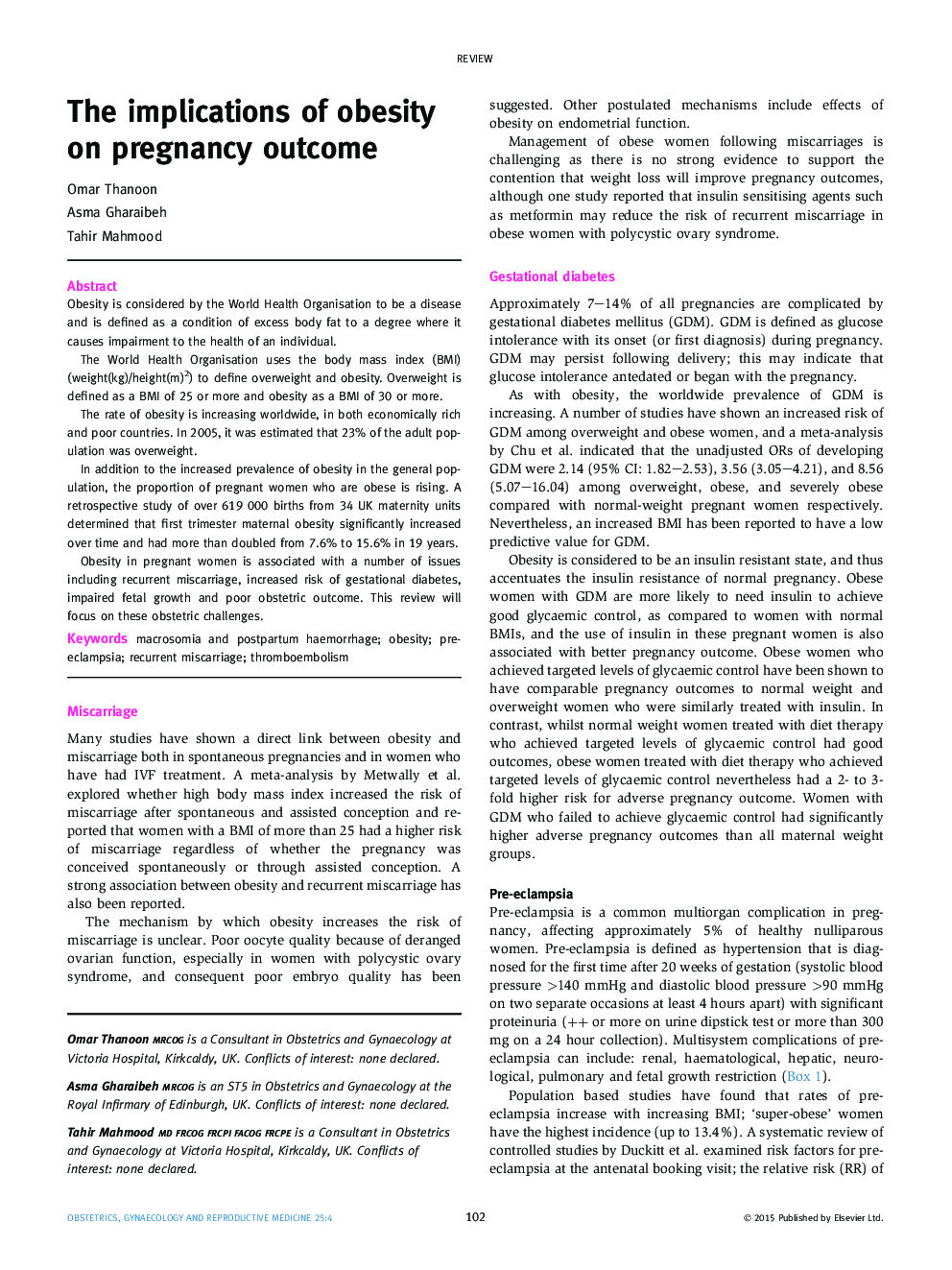| Article ID | Journal | Published Year | Pages | File Type |
|---|---|---|---|---|
| 3966706 | Obstetrics, Gynaecology & Reproductive Medicine | 2015 | 4 Pages |
Obesity is considered by the World Health Organisation to be a disease and is defined as a condition of excess body fat to a degree where it causes impairment to the health of an individual.The World Health Organisation uses the body mass index (BMI) (weight(kg)/height(m)2) to define overweight and obesity. Overweight is defined as a BMI of 25 or more and obesity as a BMI of 30 or more.The rate of obesity is increasing worldwide, in both economically rich and poor countries. In 2005, it was estimated that 23% of the adult population was overweight.In addition to the increased prevalence of obesity in the general population, the proportion of pregnant women who are obese is rising. A retrospective study of over 619 000 births from 34 UK maternity units determined that first trimester maternal obesity significantly increased over time and had more than doubled from 7.6% to 15.6% in 19 years.Obesity in pregnant women is associated with a number of issues including recurrent miscarriage, increased risk of gestational diabetes, impaired fetal growth and poor obstetric outcome. This review will focus on these obstetric challenges.
